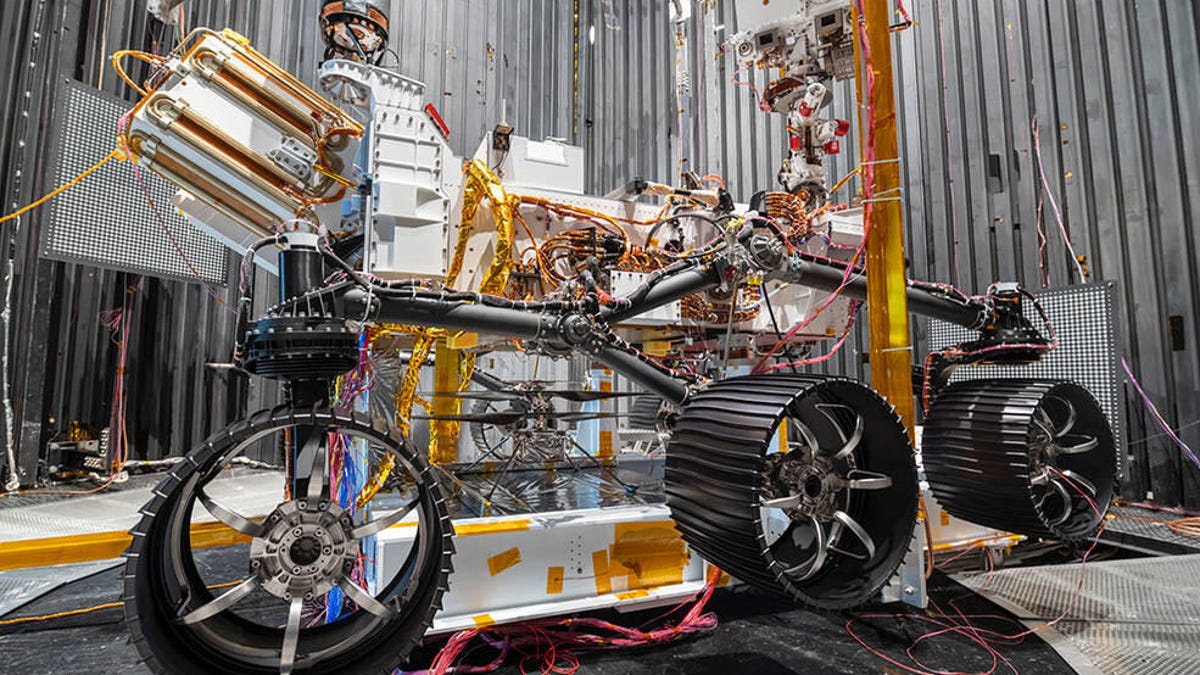NASA powers up first Mars helicopter, Ingenuity, as it travels through space
Feel free to get hyped about flying a helicopter on another planet.

This photo from late 2019 shows the Perseverance rover with the Ingenuity helicopter sitting underneath it.
NASA already has some good news to share about its Mars Ingenuity helicopter, the high-risk, high-reward experiment that's destined for a date with the red planet. Ingenuity launched as part of the Mars 2020 mission in July.
The small helicopter, which is currently zipping through space tucked into the belly of the Perseverance rover, is alive and well. NASA announced on Thursday that it had successfully recharged the helicopter on Aug. 7 while in mid-spaceflight.
"This marks the first time the helicopter has been powered up and its batteries have been charged in the space environment," the agency said.
There are a lot of unknowns surrounding Ingenuity. Will it survive the harsh journey to Mars? Will its systems function as intended once Perseverance drops it off on the planet's surface? Will it fly?
The helicopter's initial health checkup is a good sign. "We have a lot more firsts to go before we can attempt the first experimental flight test on another planet, but right now we are all feeling very good about the future," said MiMi Aung, Ingenuity project manager at JPL.
The power-up and charging process took eight hours, and the Ingenuity team recharged the lithium ion batteries to 35%. The team will repeat the activity every couple of weeks. That means Ingenuity has a lot of recharges to look forward to. Perseverance isn't scheduled to reach Mars until February 2021.
If Ingenuity is a success, it could help open the skies on other worlds.

